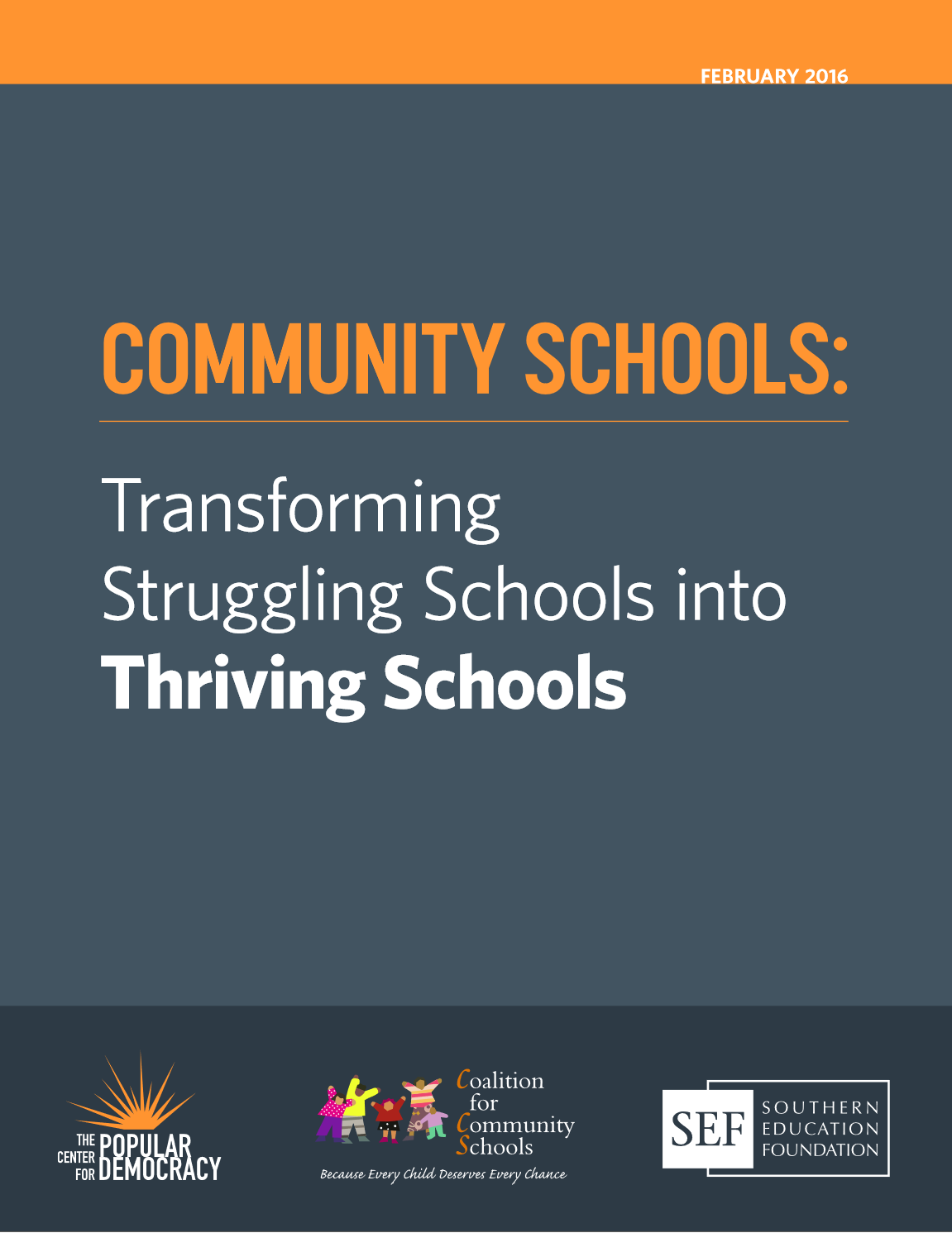By Fred Jones, SEF Senior Director of Public Policy and Advocacy
The Southern Education Foundation (SEF) has long pushed for more “community schools” across the country – schools with an integrated system of support that provides academic and additional types of services for students, families, and their communities.
I provided written testimony to Congress on behalf of SEF to support additional funding for the U.S. Department of Education’s Full-Service Community Schools grant program. SEF also recently shared critical information about the federal community schools application to communities and school districts in the South.
That’s why we were proud to see the U.S. Department of Education’s recent announcement of a record $63 million in community schools grants to support 42 new Full-Service Community Schools (FSCS) grantees. The grants will lead to unprecedented growth in community schools that support whole-child needs.
SEF has partnered with federal, state, and local organizations to push for greater federal funding for these resources for students in low-income, high-need communities. We congratulate the Fiscal Year 2022 grant recipients in our region, including the Mobile Area Education Foundation in Alabama, The Prichard Committee for Academic Excellence in Kentucky, and Seeding Success in Tennessee. We urge continued federal investments in this vital strategy for education justice.
SEF is also pleased to see that President Biden’s proposed budget for next year would direct a record $150 million to the FSCS program.
The community-schools approach that supports the development of the whole child, not just content mastery. Community schools often provide health and social services (such as medical clinics and mental health professionals), expanded educational programs for students (such as tutoring, after-school, summer programs, and community access to the school library or recreation facilities), and other services to address the needs of each community.
Last year saw the largest number of grant applications since the FSCS program was established in 2010, demonstrating the growing need for this evidence-based strategy, according to the U.S. Education Department.
The new federal grants were awarded to 42 local education agencies, nonprofit groups, universities, and others in eight new states and U.S. territories. The grantees in the southern states include:
Alabama: Mobile Area Education Foundation, $2.68 million
Georgia: Community in Schools of Georgia, $3 million for a multi-district project across six rural counties
Kentucky: Partners for Rural Impact, two grants of $3 million each for multi-district projects and a $10 million state scaling grant, and the Prichard Committee for Academic Excellence, $9.6 million for a state scaling a grant, plus $3 million to the Wilderness Education Project
Maryland: University of Maryland, Baltimore, for $385,500 capacity building and development
Tennessee: Seeding Success, a $2.8 million multi-district grant
Texas: Austin Independent School District and Transformation Waco, each receiving $500,000 for capacity building and development
Read more details on each of these grants here.
MORE RESOURCES ON COMMUNITY SCHOOLS:
- The Brookings Institution reported in December on how the NEA Foundation has helped schools in three southern states—Arkansas, Louisiana, and Mississippi—collaborate on community schools and to share best practices.
- The Learning Policy Institute’s look at the research on community schools and their many benefits for students.
- The White House toolkit of federal resources to support community schools.
- SEF’s earlier announcements of the community schools grant application for 2022, our joining with other organizations to push for this funding, and our look at what the president’s 2022 budget (which included these grants) could mean for our region.
- In partnership with The Center for Popular Democracy and the Coalition for Community Schools, SEF released a report on how community schools can help improve a wide range of indicators of student success: Community Schools: Transforming Struggling Schools into Thriving Schools profiled community schools across the country using evidence-based strategies to bring together school, family, and community resources to make schools stronger and help more young people thrive.

